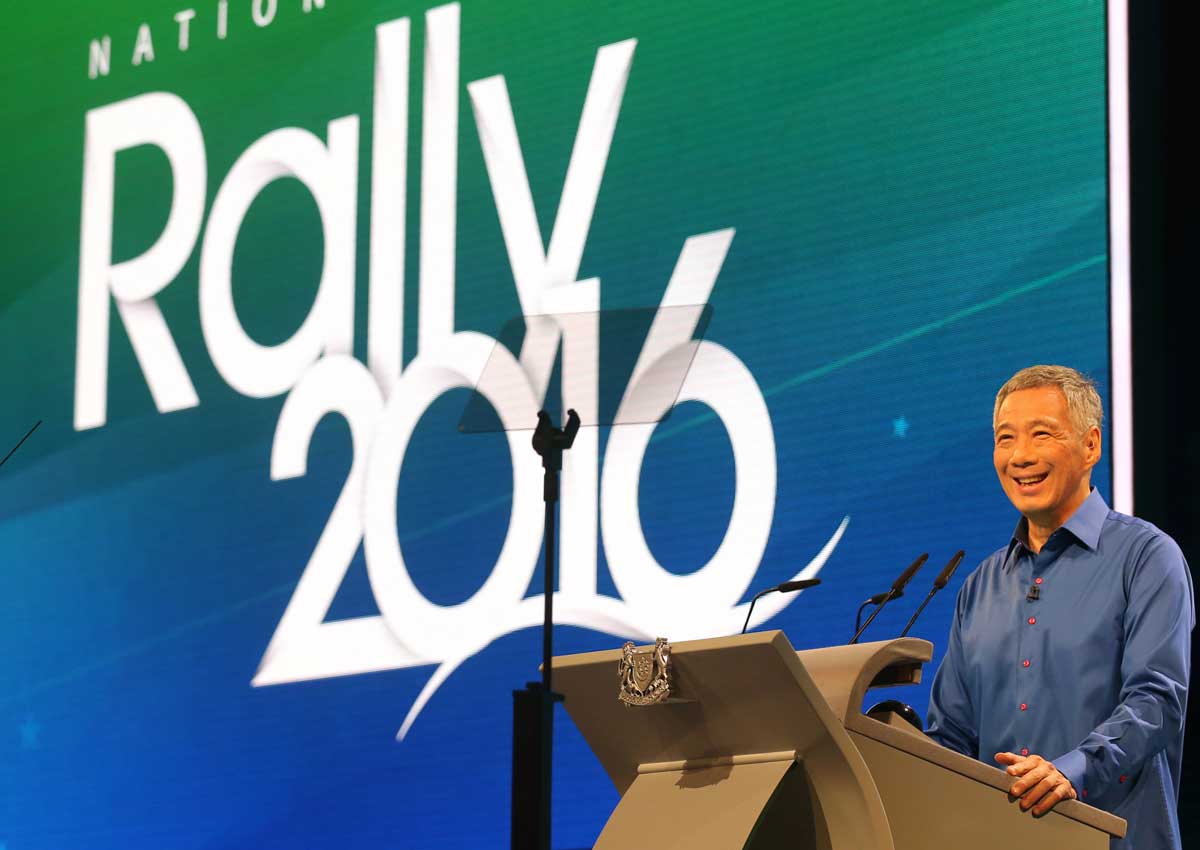SINGAPORE – When Singapore’s first prime minister Lee Kuan Yew died last year, Prime Minister Lee Hsien Loong visited Tanjong Pagar, the ward where the late Mr Lee was a lifelong MP.
He was accompanied by Senior Minister of State Indranee Rajah, a Tanjong Pagar GRC MP who had been helping the older Mr Lee out at his ward for many years.
Despite that, and the fact that she spoke fluent Cantonese, one resident still came up to PM Lee and asked him to send a “bilingual minister” to the ward.
Citing this in his Mandarin speech at the National Day Rally on Sunday night (Aug 21), PM Lee sought to illustrate how Singaporeans are “not completely race-blind”, and thus it was important to support changes that would allow a non-Chinese President from time to time.
“It’s human nature. We feel more comfortable interacting and working with people who share the same culture, language and ethnicity as we do,” he said.
Whether a candidate is able to communicate with residents in their mother tongue, or understand their culture and faith, is something voters have thought about during an election.
“So, in Singapore, language and role do play a role in elections,” he said.
All things being equal, a minority candidate contesting in a Chinese-majority constituency is at a disadvantage, which is why group representation constituencies exist to ensure minority representation in Parliament, he said.
It is also why he proposed changes to the elected president scheme in January this year to ensure that, among other things, there is a non-Chinese President from time to time, he said.
A special report from the Constitutional Commission came out last week. The Government has said it will respond in due course.
A recent survey by Channel NewsAsia and Institute of Policy Studies also showed that most Singaporeans across all races will accept a prime minister or president of another race, but a significant number show a strong preference for these leaders to be of their own race.
“Let’s be honest with ourselves and deal with this squarely: for a non-Chinese to become an MP, it is not easy. For a non-Chinese to be elected President is even harder,” PM Lee said.
Since the announcement, PM Lee said he had heard feedback that there is no need to make provisions for minorities as Singapore is a multi-racial society, or that a Chinese President is elected is alright given that the country has a Chinese majority.
But he urged Singaporeans to “face up to the reality of our multi-racial context”, as under the current system, Singapore may not get a non-Chinese President for a long time.
“If so, this will weaken the sense of national identity among minorities and affect our unity,” he said. “This is serious as it concerns our social cohesion, our multi-racial society and our future.”
It is important to have a Malay, Indian or someone of another race as President from time to time, as the role as head of state is a unifying symbol for all Singaporeans, he said.
Former president S R Nathan is a good example, he said: “Mr Nathan is Indian, but as President, he looked after the interests of all Singaporeans. He proactively reached out to all races and got to know them well.”
He added: “I hope the Chinese community will support the constitutional changes we may propose so that if we have a good minority Presidential candidate, he can become the President, and represent all Singaporeans.”
rachelay@sph.com.sg

This article was first published on August 21, 2016.
Get a copy of The Straits Times or go to straitstimes.com for more stories.

















































